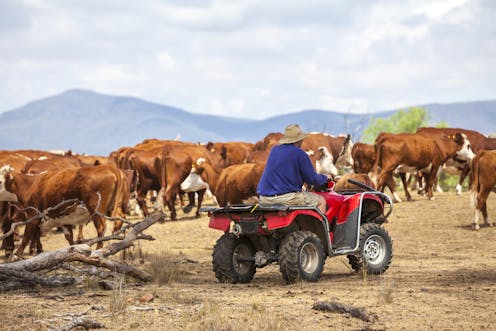Report recommends big ideas for regional Australia – beyond decentralisation
- Written by Amanda Walsh, Associate Director, Government Relations, Australian Catholic University

After a full year spent delving into the economic and social challenges facing regional Australia, the Select Committee on Regional Development and Decentralisation this week delivered its report.
It’s a surprising piece of work. Why? Because it avoids the ingrained partisanship that has bedevilled regional policy in Australia.
Put simply, it’s good, rigorous work. It makes recommendations that any smart government, of any political hue, could support.
The report even avoids the landmines surrounding the highly contentious policy of decentralisation – the relocation of city-based public service agencies to the regions. It has sidestepped its most obvious route – a squabble over decentralisation – and instead taken a good, hard look at the big issues confronting regional communities and economies.
Read more: Cities policy goes regional
Let’s take a moment to recall the politically awkward background to this inquiry. It was launched following Barnaby Joyce’s controversial decision to uproot the Australian Pesticides and Veterinary Medicines Authority from Canberra and relocate it to Tamworth, in his own electorate.
A separate Senate committee had already inquired into that decision. Its report (issued a year ago) demonstrated the highly politicised nature of this policy terrain: the majority report, by non-government senators on the committee, firmly rejected the relocation, while the minority report by government senators slammed the entire inquiry as “a political witch-hunt”.
This new inquiry could have traversed the same terrain, with the same outcomes. Certainly, the terms of reference were heavily focused on the issue of decentralisation. But they also invited comment on the overarching wellbeing of regional Australia, and this provided an opportunity the committee members seized.
The committee’s report covers a sweeping range of issues, which is entirely necessary, given the complex interactions between regions and what the committee terms “megatrends” – things like globalisation, population ageing, urbanisation and technological change.
The committee’s recommendations are similarly comprehensive and unapologetically ambitious. The explicit goal is to move beyond the old “roads and rail” approach to regional investment. Instead, it supports strategic (or “catalytic”) investments that build workforce and leadership capacity, cultural capital and infrastructure to support and attract jobs.
The report even elucidates 12 principles of regional development. It’s a sure sign that the committee made a genuine effort to synthesise information from the 196 submissions it received and the more than 100 witnesses at public hearings around the country.
The 13 recommendations are arranged around a central strategy, with six interrelated themes:
building “enabling infrastructure” that supports development
identifying regional development priorities through a national process
extending the fledgling City Deals program to regional cities
giving Regional Development Australia committees more power and resources
developing a proper policy for public sector decentralisation
strengthening regional universities.
I’ll own up to being very pleased that my own recommendation made it onto the list: that the government prepare a white paper on regional Australia. This would elevate regional policy to the same hallowed arena as foreign, defence and security policy.
All of this would be monitored by a new Joint Standing Committee on Regional Development and Decentralisation, to cement parliamentary oversight of the work program.
And what about shifting all of those public sector jobs out of the capital cities and into the regions? This isn’t a new debate. In fact, decentralisation is a recurring theme in regional development, at both federal and state levels.
The practice of governments luring, or pushing, jobs from the corporate and public sectors into regional Australia stretches back to the 1930s. Since then, governments have periodically promised – and occasionally delivered – highly interventionist policies to move labour and capital from the cities to the country.
This inquiry was charged with examining decentralisation, and its report does exactly that, but in an admirably low-key way. Shedding more light than heat, the report insists that decentralisation should only be pursued where it makes sense – that it “should be part of a broader strategy for regional development”. That simple statement is a marked departure from the previous partisan bickering on this issue.
Read more: The growing skills gap between jobs in Australian cities and the regions
So where does this report leave us? And, more importantly, what does it do for the nearly 9 million Australians who live in regional and rural areas?
The answer is, the committee has laid out a far-reaching and highly practical work program for regional development. If either side of politics took up its recommendations, regional communities might find themselves in a better position to construct sustainable, enjoyable futures.
In the short term, an election is due in the next 12 months and there’s a good chance this report’s recommendations will be cherry-picked for election policies.
But beyond the current electoral cycle, this report gives federal parliamentarians a comprehensive plan for meaningful work over the next decade or more. Here’s hoping they make the most of it.
Authors: Amanda Walsh, Associate Director, Government Relations, Australian Catholic University




